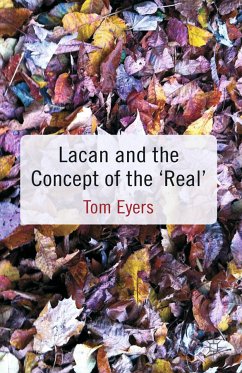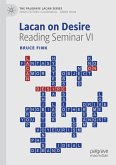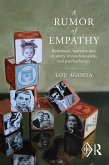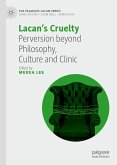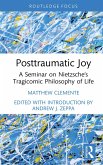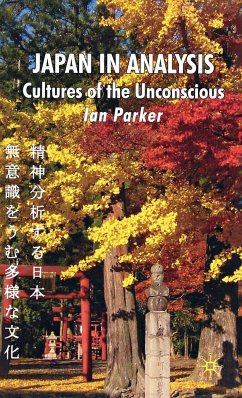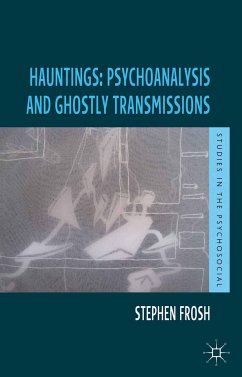Dieser Download kann aus rechtlichen Gründen nur mit Rechnungsadresse in A, B, BG, CY, CZ, D, DK, EW, E, FIN, F, GR, HR, H, IRL, I, LT, L, LR, M, NL, PL, P, R, S, SLO, SK ausgeliefert werden.
'Although references to Lacan's notion of the Real are widespread in today's theoretical humanities, a rigorous, systematic presentation of this key concept has been missing. Eyers's superb study remedies this lack. With precision and insight, Eyers brings to light the interconnected facets of the Lacanian Real. Moreover, he creatively advances a number of contemporary discussions and debates, masterfully revealing the philosophical power and richness Lacan offers his readers.' - Adrian Johnston, University of New Mexico, USA

